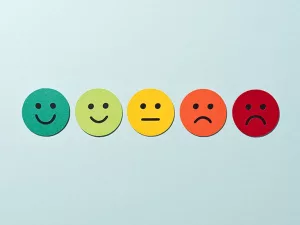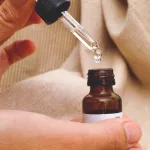
Why Soft Words Matter
Do you ever catch yourself wincing at a word… even when someone’s “technically” being nice? Sometimes it’s not what’s said—it’s how it lands. Or maybe that’s just me. Either way, you’re here, so I’m guessing words matter to you too. Let’s chat about them.
We throw words around all day—at friends, at coworkers, at ourselves in the mirror (don’t pretend you don’t). But there’s a sneaky power in using gentle synonyms and antonyms with care. In the world of health and emotional wellness, your daily vocabulary can be as calming as a soft hug… or as harsh as a cold shower.
Sound dramatic? Maybe. But stick with me. There’s real science behind gentle communication boosting mood and even dialing down stress hormones. And hey, a little more kindness in the world? Never hurt anyone.
How Gentle Feels (And Why We All Crave It)
Have you ever walked away from a conversation and felt lighter? Or, on the flip side, like you’ve been steamrolled—just. By. Words? That’s the quiet magic of choosing gentle language: terms like soothing, soft, and tender can literally reshape a moment, a relationship, or, yeah—sometimes your own self-talk…research on synonyms of gentle.
It’s not just about being “nice.” Sometimes it’s about being real in a way that lands kindly. In my own (sometimes messy) experience, saying, “Hey, that sounds tough, do you want to talk it out?” instead of, “Just get over it” actually opens doors. It feels, well, safe.
Small Words, Big Shifts
Let’s pause. Reflect for a sec: Who do you trust more—a person who says, “You messed up,” or someone who goes, “We’ll figure it out, let’s try again”? Yeah. Me too.
Words heal. They also wound. The dictionary agrees—and I usually trust that stubborn old book.
Real-life Snapshots: Gentle vs. Harsh
| Scenario | Harsh Antonym | Gentle Synonym | Emotional Impact |
|---|---|---|---|
| Friend needs feedback | “That’s wrong.” | “Let’s see how we can tweak it.” | Feels supported, not shamed |
| Fitness class, first timer | “You’re doing it all wrong.” | “Great form—let’s build on it!” | Confidence grows, less tension |
| Self-talk after bad day | “I’m useless.” | “Today’s tough; tomorrow’s another shot.” | Less anxiety, softer recovery |
Everyday Gentle: Synonyms for a Calmer Life
So, what does “gentle” even mean? Maybe it’s mild, sweet, mellow, or compassionate (thesaurus.com’s take). Or maybe it’s just not harsh, not forceful… that friend who listens instead of lecturing, that yoga instructor who whispers, “You’re doing great.”
There are so many flavors: soft, amiable, kind, considerate, even delicate or light. Switching one into a sentence might seem small. But over time? Subtle shifts like this transform emotional health. Not kidding.
And if you want more gentle language for everyday stuff, honestly—bookmark this one: Gentle and caring synonyms. I keep it handy for those days when my patience… needs a little nudge.
What Makes a Word Feel Gentle (Or Not)?
Okay, imagine you’re at a gym. You’re struggling, a bit embarrassed. Coach comes up and, instead of “Push harder!” says “Go at your own pace, you’re here for you.”
Suddenly—breathing feels easier, right?
That’s the muscle of gentle language: words like placid, easy, warmhearted, lenient… They relax you. They signal safety, respect, trust. Isn’t that what we all want in our wellness circle? Or from ourselves on a hard day?
Try Swapping These in Today
| Instead of… | Try… |
|---|---|
| Critical or cold | Compassionate, mellow, considerate |
| “You’re slow!” | “Go at your own speed. We’re in no rush.” |
| “That’s weak.” | “It’s okay to ease in, everyone starts somewhere.” |
(I tried “easy does it” with my niece learning to ride her bike… worked like magic. She stopped crying. I did too.)
Gentle’s Flip Side (Why It Sometimes Hurts)
Alright, so there’s the flip: the world of gentle antonyms. The “hard-hearted,” the “rough,” the “harsh”—we all meet them sometimes. Maybe you’ve been them (guilty, over here). Here’s the deal: those words sting. They leave marks way past the moment.
I snapped at my best friend once—just tired, hungry, all the excuses. The word “brutal” came out of my mouth… and when she went silent, it hit me. Oof. That’s what hard or severe language does: it builds walls. You know those, right?
Why Do Antonyms Sneak In?
Fatigue, stress, not enough coffee. Sometimes we reach for words like “aggressive,” “mean,” or “rude” without even meaning to. According to examples from Cambridge English Thesaurus, these antonyms crop up all the time: unexpectedly, carelessly, sometimes playfully but often at a cost.
And if you’re curious—take a look at how these opposites play out in slang and playful teasing in our breakdown Gentle synonyms and antonyms slang. (Warning: can cause smirking. Or second thoughts the next time you want to call someone “savage.”)
Quick Spot & Swap Guide
| Antonym | Slang Equivalent | Gentle Fix |
|---|---|---|
| Harsh | Savage | Kind |
| Rough | Brutal | Soft |
| Mean | Salty | Sympathetic |
| Hard-hearted | Cold | Tender |
Slang: The Secret Sauce for Modern Gentle
Let’s be honest… “gentle” can sound a bit grandma with her lace handkerchief. But gentle in 2025 has a serious cool factor when you dip into Gentle synonyms and antonyms slang. Words like chill, easygoing, or even “duck” (as in “No need to duck, I’ve got your back”)—they matter in emotional wellness, too.
I remember at a group fitness class, the coach didn’t tell us to “stop whining” (yikes). Instead they said, “No pressure, listen to your body…” So simple, so gentle. And people came back. Blame the endorphins, blame the wording—I say both.
That’s why I recommend spicing up your gentle language with a bit of modern flair. For inspiration (and a few giggles), check out the fun round-up at Gentle synonyms and antonyms slang.
How About a Little Practice?
Here’s a dare: next time someone complains about their “brutal” commute, try, “Sounds like you need some chill time after all that.” Watch their shoulders drop. (Bonus points if you make them laugh.)
Language is weird: sometimes a word as simple as “relaxed” does more good than a week of green smoothies and deep breaths. Actually… combine both. See what happens.
Building Everyday Emotional Fitness (With Simple Words)
You don’t have to change your whole personality to use more gentle synonyms and antonyms in your life. (No boring, robotic script. Promise.) It’s more about those intentional swaps, little by little.
Here are a few of my go-to tweaks for emotional self-care:
- Pause before you reply—ask, “What’s the gentlest way I can say this?”
- Self-talk check: After a tough workout, try “I showed up today” instead of “I’m weak.”
- Encourage a friend with “I’m here” or “Let’s figure it out together.” No judgment.
- Ditch “savage” from your pep talk unless you’re a literal lion.
And if you stumble (we all do)… well, congratulate yourself for noticing. That’s how progress happens—awkward, honest, and, yes, a little messy.
The Takeaway: It’s Not About Perfection
If you remember anything, let it be this: gentle isn’t weakness. It isn’t boring. Gentle can be firm, clear, and even fierce in its way… like that nurse who tells you everything will be okay (and you believe them).
Gentle synonyms and antonyms are just tools. Use them to build your emotional fitness, shape stronger connections, soften your self-talk, and let your words do a bit of heavy lifting for you. Not just in health or fitness—everywhere.
I’ll leave you with one last tip: When in doubt, pull up Gentle and caring synonyms—and if someone gives you grief for being “too soft,” just smile. Being gentle is kind of a superpower.
Now What? Try This Soft Approach for a Week
Alright… deep breath. Over the next week, swap out one harsh phrase for a gentle synonym every day. Maybe that’s with your stubborn family member, or the voice in your own head when you miss a workout (it’ll happen, life’s messy). Jot down any shift you notice—feelings, reactions, even if you roll your eyes at yourself. You’ll be surprised at how quickly gentle words lighten things up.
No pressure to nail it—just experiment. Curious? Share in the comments or drop your favorite gentle phrase. We can all use more kindness in our vocab, trust me.
Here’s to more soft words… and softer days.
























Leave a Reply
You must be logged in to post a comment.